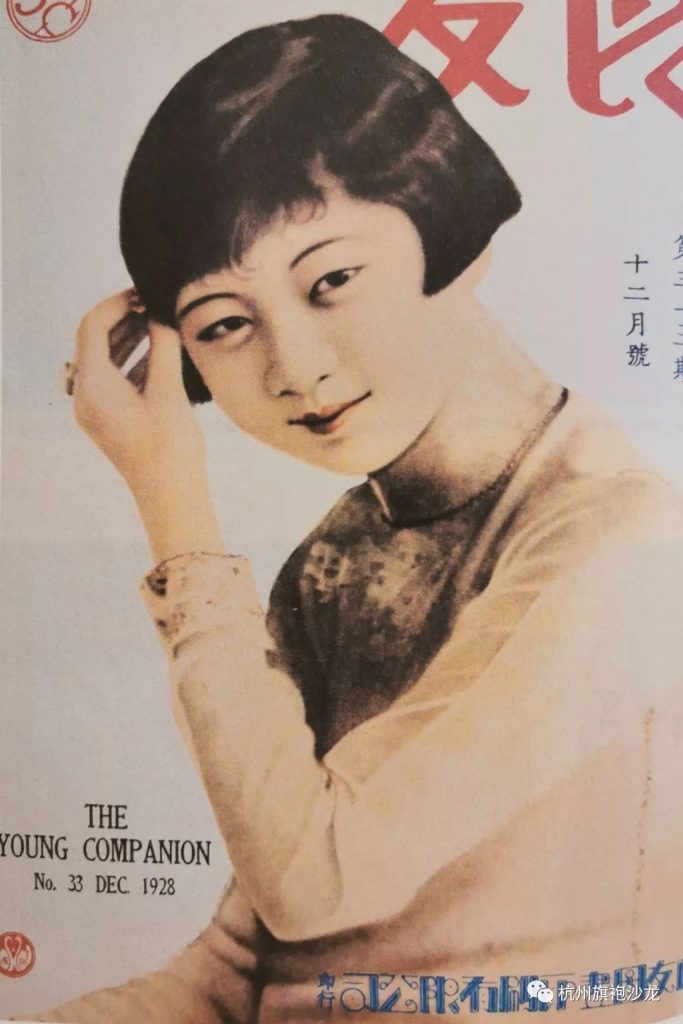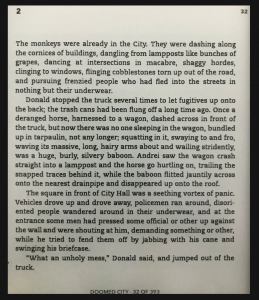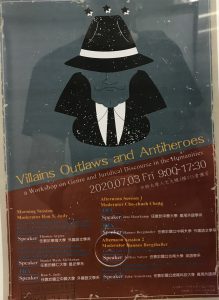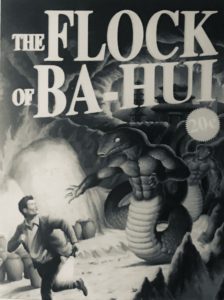Since I myself had difficulty finding a “clean” copy of the original (?) text, I’m posting my re-formatted copy of 我的祖国不做梦 here. Since I took this off of a “free books” site without any publishing info, the question of which version this is open–I don’t think it’s the original but the one he revised, making foreigners (CIA?) responsible for making people into drones.
Alien Entity
君子不器
Kenneth Rexroth on the Web

Rexroth, a poet and translator I’ve long admired, was also a fascinating individual. He was orphaned at an early age and sent to live with his aunt in Chicago in the 1910s, dropped out of school, studied painting at the Chicago Inst. of Art with Wen Yiduo, and traveled to Europe where he met the DADA poet Tristan Tzara among other people. A lifelong anarchist, his poems are often lyrics about the wilderness and his experiences traveling. Later in life he was a kind of big brother figure to some of the Beat poets, Gary Snyder esp., and because of a native ability with languages began translating Roman, Chinese, and Japanese poetry. His most famous translations are Women Poets of China and The Collected Poems of Li Ch’ing-zhao, a female poet of the Song Dynasty, both done in cooperation with scholar Chung Ling. Fortunately there’s a good bit of material on Rexroth on the web. The venerable, invaluable Rexroth site The Bureau of Public Secrets has been around forever. Morgan Gibson’s book, “Revolutionary Rexroth: Poet of East/West Wisdom,” has long been available online and my favorite chapter is the one on “Translation as an Act of Sympathy.”
“The Young Companion” and modern China
 First published the same year Hugo Gernsback came out with his legendary science fiction magazine, Amazing Stories, in 1926, The Young Companion《良友》catered to the tastes of young middle class people, but it was also a force for social change. This fascinating article (in Big5) talks about 《良友》the “natural breast movement” 「天乳運動」 among young women in the 1920s-30s, and this sohu article (GB) discusses the fashion sense displayed in the pages of the magazine. In this pic you can see that the bobbed, flapper hairstyle we associate with the West was popular in China of the 20s also. The Young Companion is often thought of as product of Shanghai’s hybrid culture, but this article talks about its founding by a Guangdong native, Wu Lian-de (伍聯德).
First published the same year Hugo Gernsback came out with his legendary science fiction magazine, Amazing Stories, in 1926, The Young Companion《良友》catered to the tastes of young middle class people, but it was also a force for social change. This fascinating article (in Big5) talks about 《良友》the “natural breast movement” 「天乳運動」 among young women in the 1920s-30s, and this sohu article (GB) discusses the fashion sense displayed in the pages of the magazine. In this pic you can see that the bobbed, flapper hairstyle we associate with the West was popular in China of the 20s also. The Young Companion is often thought of as product of Shanghai’s hybrid culture, but this article talks about its founding by a Guangdong native, Wu Lian-de (伍聯德).
Monkeys of Mayhem
In March we saw a big brawl between two rival gangs of monkeys in Lop Buri, Thailand, and then their final take over of the town. Then, in June, came a life sentence for Kalua, the alcoholic Indian monkey who terrorized over 250 pedestrians and will be spending the rest of his days in solitary confinement. According to the reports:
Local authorities said Kalua was formerly owned by an “occultist” who routinely supplied him liquor to drink, which turned him into an alcoholic. They said the monkey became very aggressive three years ago when his owner died and left him no avenue to acquire more alcohol.
Can’t help but feel sorry for the guy, and wonder why he didn’t join a monkey gang if he wanted to raise so much hell? The Lop Buri story reminds me of that Strugatsky novel “Doomed City”, where:
 Could it be another portent of some kind?
Could it be another portent of some kind?
Villains, Outlaws, and Antiheroes workshop
 It was again a fun event, and I got to hear a lot of interesting talks. I was worried that 7 presenters might be too many, that folks would become tired, but it wasn’t too bad. (At least not for me). At the November workshop we only had four talks and that seemed to work out pretty well, though we only started in the afternoon. The after-dinner was fun too, although only 5 people were able to attend and the restaurant kicked us out after 2 hours. Nice to sit in the hole and consume Japanese food with friends, have a few beers, and talk about old times. Not sure if I want the responsibility to continue doing these events, but I do enjoy them and think that they could lead to better scholarship. As I told one participant, what I value in them is the scholarly community, the ability to talk with openly and freely about work we care about. In the US, starting my career, I imagined it would always be like this, but unfortunately I never found it in Taiwan.
It was again a fun event, and I got to hear a lot of interesting talks. I was worried that 7 presenters might be too many, that folks would become tired, but it wasn’t too bad. (At least not for me). At the November workshop we only had four talks and that seemed to work out pretty well, though we only started in the afternoon. The after-dinner was fun too, although only 5 people were able to attend and the restaurant kicked us out after 2 hours. Nice to sit in the hole and consume Japanese food with friends, have a few beers, and talk about old times. Not sure if I want the responsibility to continue doing these events, but I do enjoy them and think that they could lead to better scholarship. As I told one participant, what I value in them is the scholarly community, the ability to talk with openly and freely about work we care about. In the US, starting my career, I imagined it would always be like this, but unfortunately I never found it in Taiwan.
Oobmab and other Weirdnesses
 So I found a clean version of Oobmab’s “The Flock of Ba-hui” in (GB) Chinese (「巴虺的牧群」2013). The source is a very interesting Fantasy dojinshi and translation discussion forum called “The Ring of Wonder” (which looks completely different in its mobile format btw). There are many other works of HPL-inspired horror available on their Cthulhu board and, interestingly, the “Cthulhu” board is only one of three subforums of “the Mirror of Obscurity – 幽暗之镜” category–which also includes subforums “Surreal Lullaby: General Subcultures 异夜咏谣” and “SCP Foundation.” A lot of translations from “CopyPasta” and things like Charles Stross’s Lovecraft-inspired SF “The Laundry Files.” Cha has a detailed review of “Flock,” and this site has a brief one.
So I found a clean version of Oobmab’s “The Flock of Ba-hui” in (GB) Chinese (「巴虺的牧群」2013). The source is a very interesting Fantasy dojinshi and translation discussion forum called “The Ring of Wonder” (which looks completely different in its mobile format btw). There are many other works of HPL-inspired horror available on their Cthulhu board and, interestingly, the “Cthulhu” board is only one of three subforums of “the Mirror of Obscurity – 幽暗之镜” category–which also includes subforums “Surreal Lullaby: General Subcultures 异夜咏谣” and “SCP Foundation.” A lot of translations from “CopyPasta” and things like Charles Stross’s Lovecraft-inspired SF “The Laundry Files.” Cha has a detailed review of “Flock,” and this site has a brief one.
Identity politics, artistic autonomy, and a disappearing SF Story
 It all began with a silly, transphobic meme [image right]…Then came the story, “I sexually identify as an Attack Helicopter,” which first appeared in Clarkesworld (Jan 2020 issue), but caused a huff among certain hypersensitive readers who claimed it was insincere, inauthentic, and insensitive to transgendered people in the same spirit as the original meme. After all this nail-biting angst and triggering the story was finally removed at the request of the author. (Archived version here). Then came the national commentary, which was often insightful as it was swift, with WIRED magazine weighing in with…
It all began with a silly, transphobic meme [image right]…Then came the story, “I sexually identify as an Attack Helicopter,” which first appeared in Clarkesworld (Jan 2020 issue), but caused a huff among certain hypersensitive readers who claimed it was insincere, inauthentic, and insensitive to transgendered people in the same spirit as the original meme. After all this nail-biting angst and triggering the story was finally removed at the request of the author. (Archived version here). Then came the national commentary, which was often insightful as it was swift, with WIRED magazine weighing in with…
The notion that the story was written by someone who agrees with the transphobic sentiment of the original meme caught hold. Some felt the author was likely to be a “trans-exclusionary radical feminist” (commonly known as a TERF) because of how Fall talked about gender and dysphoria and the experience of being trans.
They were utterly wrong, the TERFs weren’t on the scene: the author was herself a trans author and was writing from personal experience. The Atlantic offered a much more insightful view that WIRED in its piece on the story, “The Talented Victim is not the Point“:
The left, as distinct from the right, has long dominated high and low art. To its credit, it has used that position in part to tell humanizing stories about historically marginalized people that increase understanding and empathy. America is a more inclusive place as a result. But I don’t know that a salutary tradition running from the films of Sidney Poitier to Will and Grace to Transparent and beyond can endure if Millennial creators and succeeding generations allow their art to be policed by the most essentialist, intolerant voices; or if they are persuaded that deleting a piece of fiction is more ethical than discussing it in the open if anyone at all feels harmed by it; or that it is wrong to truthfully relate one’s own experiences if they are in tension with political orthodoxies.
This hits the nail on the proverbial head, and is the part that worries me most–the idea that we can and should just “cancel” whatever fails to jibe with our group’s own sense of political/ethical righteousness. To some extent I do think that, in abandoning the idea of “art for art’s sake” in favor of “art for politics’ sake” has a damning effect on our sensibility. I think this because, as the Marxist critical theorist Theodor Adorno pointed out, “Insofar as a social function can be predicated for artworks, it is their functionlessness” (AT 227 via SEP). That is, the singular function of art and literature is to remain a functionless space where “works” can be created without some “rational purpose” or political use. Otherwise, truly creative work cannot exist because it has been assigned some socially predetermined aim (profit, political propaganda, or therapeutic benefit) and become a tool for one class or another. Only in such a sphere of autonomy can real art, art with the power to alter our vision, survive.